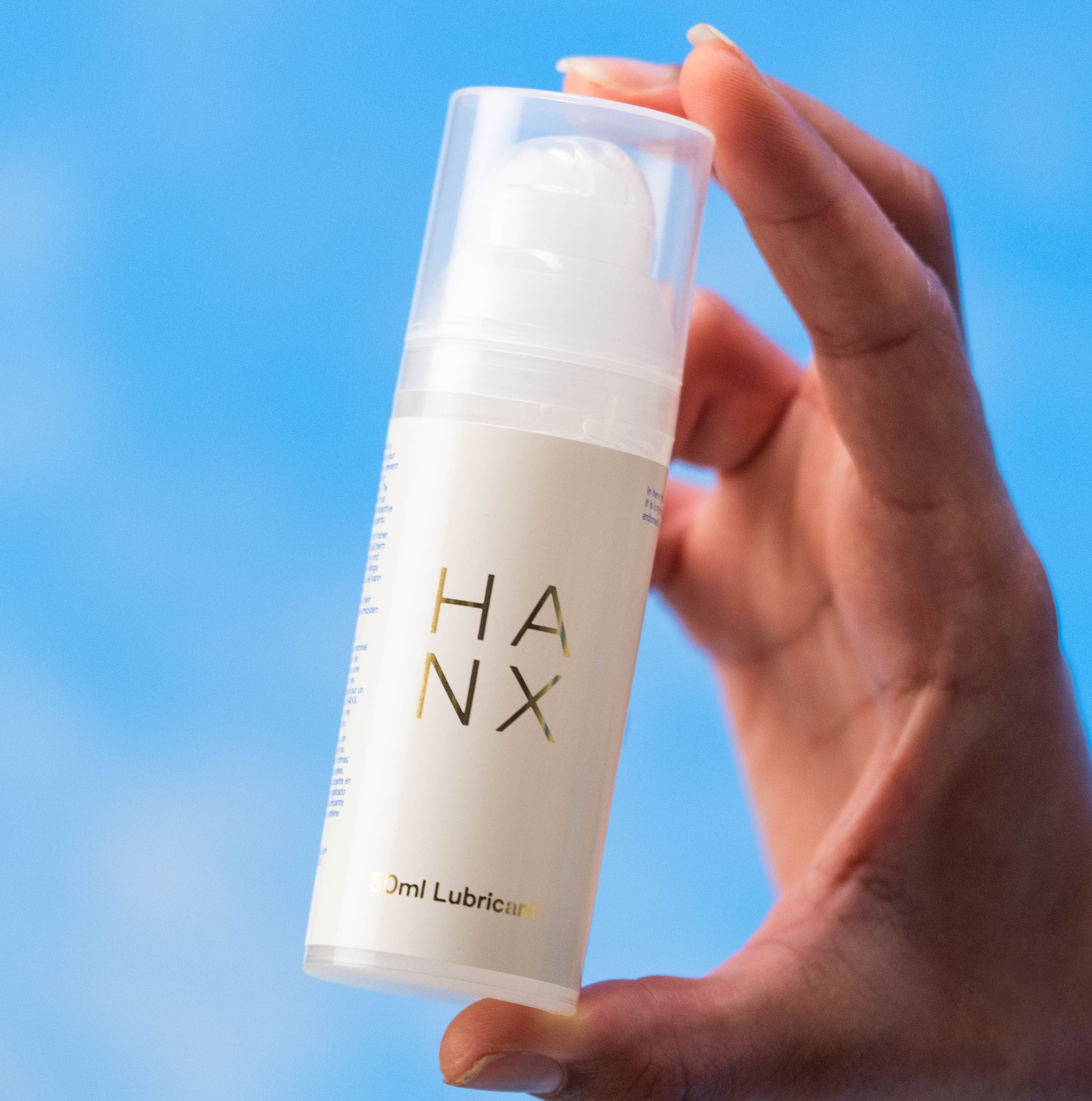Everything You Need To Know About the Combined Oral Contraceptive Pill
Grab your notebook and quit doodling, HANX Gang - we’re going back to school. First, we delved into the world of the hormonal contraception with our Co-Founder Dr Sarah Welsh. Now, let's get the lowdown on the Combined Oral Contraceptive Pill.
How does the Combined Oral Contraceptive Pill work?
Combined oral contraceptive pills (let’s call them COCP) are contraceptive pills which contain two types of hormones – oestrogen and progestin. They are often just referred to as “the pill.”
There are many different types of combined oral contraceptive pills, some with slightly higher doses of hormones in than others, and some with slight variations on the synthetic types of oestrogen and progestin included. The good news is that they’re all just as effective at preventing unwanted pregnancy (99% when taken correctly), however some may be better than others for other things such as managing heavy or painful periods or controlling PMS or acne.
Pay attention, class. The COCP works by:
- Preventing the ovaries from releasing an egg (that’s ovulation).
- Thickening of the mucus at the neck of the womb, making it more difficult for sperm to enter and reach an egg.
- Thinning the lining of the womb, so even if an egg were to be fertilised, there would be a low chance of it implanting into the womb lining and being able to grow.
Why should I choose a COCP?
They're very effective. If taken correctly, they are over 99% effective at preventing pregnancy, which means less than 1 person in 100 people who take the pill will get pregnant in a year. They can also help:
o Make heavy, painful periods lighter
o Manage PMS symptoms
o Manage Acne
o Reduce the risk of certain cancers (including ovarian, bowel and uterine cancers).
o Reduce the risk of developing ovarian cysts.
o Reduce the risk of developing pelvic inflammatory disease, an infection in the pelvis. How? Increased thickness of cervical mucus helps prevent infections tracking up into the reproductive system.
o Taking a COCP doesn’t interfere with sex, unlike other contraceptive methods.
o Your fertility returns as soon as you stop taking the COCP.
Key things to be aware of with COCPs
The COCPs are associated with a very small, but important, increased risk of blood clots in the body. Therefore, you cannot use the combined oral pill if you have any of the below:
- High blood pressure
- If you’re over 35 years old and smoke
- You have a history of blood clots in your leg or lungs
- You have a history of clotting disorders (thrombophilia)
- You have a history of stroke
- You have a history of severe migraines that have an aura (sensory disturbances that occur before migraine headache)
- You have a history of breast cancer
- You have a history of heart conditions (this can be checked with our pharmacy team or your doctor)
- You have a family history of blood clots (in a close family member under the age of 45)
- You’ve just given birth (within 6 weeks) or are breastfeeding. The progesterone only pill is the safer option in this case.
Due to a number of factors that influence your risk of having a blood clot, there are other minor factors considered when prescribing a COCP. Therefore, we have to ask certain questions in your HANX Fix: Pill questionnaire to estimate your risk. Other factors that increase your risk of blood clots, and therefore important for us to understand when prescribing a COCP, include:
- Obesity (hence why we ask for your height and weight).
- How many children you have and whether you’ve just given birth.
- Whether you smoke, and how much.
- Certain medical conditions.
- Certain medications you may be taking.
What else you need to know
- You must be organised to remember to take the pill at the same time every day, otherwise it may not be effective. If you are 24 hours or more late, taking your pill, it counts as a missed pill.
- If you miss a COCP, take the missed pill as soon as you realise (which may mean taking two pills in a day). You should take the rest of the pack as usual, and don’t need to use any extra contraception is needed.
- COCPs can cause irregular breakthrough vaginal bleeding in the first few months of use.
- They can cause other side effects (we'll explore these next).
- Certain medications can interfere with the action of COCPs, so be sure to let us know about any medical problems you have and any medications you’re taking.
- The COCPs do not protect against STIs, so be sure to get tested if you’re at risk of an STI.
When ordering a COCP from HANX, we take your medical history very seriously, and therefore need to know certain aspects in order to safely prescribe your pill.
Equally, we take your patient confidentiality very seriously, and will keep your data safe and secure. Read more on this on our Privacy Policy and T&C pages.
Potential Side Effects of the COCP
Many people do not experience any side effects with the COCP, but some side effects may include headaches, nausea, dizziness and breast tenderness. Different types of COCP can cause different side effects and some and even if one COCP causes a side effect, another may not.
Other reported side effects include mood changes, although there is little evidence to suggest a link between the COCP and mood.
Current use of COCPs for more than 5 years is associated with a small increased risk of cervical cancer, but this risk reduces over time after stopping the COCP and is no longer increased by about 10 years after stopping it.
Some women using COCP report suffering from headaches, nausea, dizziness and breast tenderness. Different types of COCP can cause different side effects and some and even if one COCP causes a side effect, another may not.
Some women taking the COCP experience breakthrough bleeding, where they have unscheduled vaginal bleeding. This happens for roughly 10-18% of people, is likely to settle within 3-4 months of starting the pill and is not disimilar those who do not take a COCP. Please see a health professional if you have any unusual vaginal bleeding as this can be a sign of something else, such as infection or pregnancy.
How to order your Combined Oral Contraceptive Pill via HANX
All COCPs require a prescription, so we can ensure you’re getting the correct pill for your needs and medical history. Here’s how the HANX Fix: Pill service works:
- Simply choose your pill, add to your basket, and answer our confidential questionnaire before checkout.
- When the prescription is approved by our trusted pharmacy team, you can receive your order as soon as the very next day with Express Delivery. Pro tip: you’re
- You can choose either a 3 months or 6 month supply of the pill, depending on your preference and the advice of our pharmacy team.
- All our outer packaging is discreet, so no one will know that you’ve ordered the pill if you don’t want them to.
Get started by finding out if you're eligible for the COCP here.
Sources:
- The Faculty of Sexual and Reproductive Healthcare (FSRH): Standards and Clinical guidance.
- National Health Service (NHS): Contraception Guide.
- National Institute of Health and Care Excellence (NICE): Hormonal Contraceptives






















